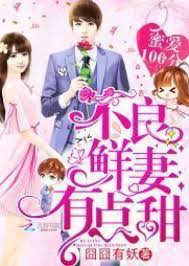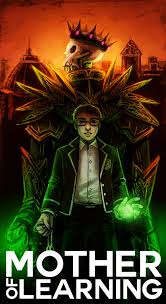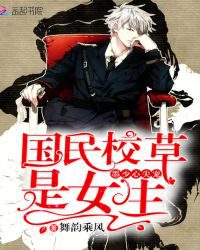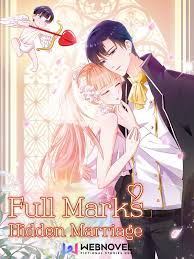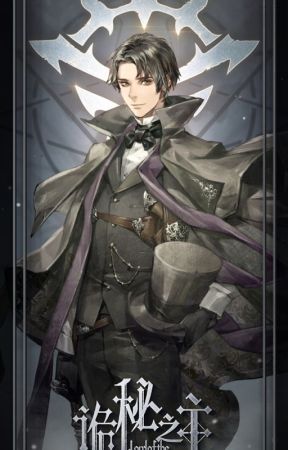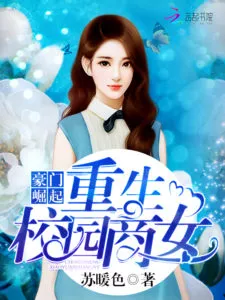The Story in 3 Sentences
Ye Wanwan dies in agony after a life of betrayal, abuse, and manipulation—only to awaken seven years in the past, back in the body of her younger self, trapped once more in a marriage with the cold and domineering Si Yehan.
This time, she remembers everything: the lies of her so-called best friend Shen Meng Qi, the suffocating control of her husband, the way her spirit was broken piece by piece—and she refuses to play the victim again.
Armed with foresight and fury, Wanwan reclaims her identity, weaponizes her pain, and orchestrates a meticulous revenge, transforming from a stigmatized “bad wife” into a woman who bends fate itself to her will.
Why It Stands Out
1. The Rebirth of a Warrior, Not a Martyr
Wanwan’s return from death isn’t just a second chance—it’s a declaration of war. Unlike typical rebirth heroines who quietly endure or passively wait for justice, she acts with precision, using her knowledge like a scalpel to dissect every lie, every betrayal, every power play. Her transformation isn’t about becoming kinder or wiser—it’s about becoming untouchable. She doesn’t beg for respect; she forces it. This isn’t redemption—it’s reclamation. Readers don’t just sympathize with her; they cheer as she dismantles the system that tried to erase her, making her one of the most satisfying female leads in modern gender-bender romance.
2. A Web of Lies Woven by Those You Love
The true horror of the story isn’t the abuse—it’s the intimacy of the betrayal. Shen Meng Qi isn’t just a rival; she’s the sister Wanwan never had, the confidante who smiled while poisoning her life. Si Yehan isn’t just a tyrant—he’s the man who rewrote her reality, gaslighting her into believing she was unworthy of love. The psychological depth here is devastating. Every flashback peels back another layer of manipulation, showing how love can be twisted into control, how trust becomes a weapon. This isn’t melodrama—it’s a case study in emotional warfare, and Wanwan’s journey from brokenness to clarity is as therapeutic as it is thrilling.
3. Supernatural Threads in a Human Tragedy
The rebirth isn’t just a narrative device—it feels fated. Hints of ancestral curses, hidden family legacies, and spiritual echoes suggest that Wanwan’s return is part of a larger cosmic balance, tying personal vengeance to ancestral justice. These supernatural elements don’t overshadow the human drama—they deepen it. Was she chosen to return? Is this her karma or her destiny? The mystery lingers beneath every confrontation, elevating the story from a simple revenge plot to a layered exploration of past lives, inherited pain, and the possibility of breaking cycles. It’s rare for a romance to feel like both a thriller and a metaphysical puzzle, but this novel pulls it off with chilling elegance.
Characters That Leave a Mark
There’s Shen Meng Qi – the former best friend whose sweetness masks a soul-deep obsession, manipulating everyone around her with tears and whispers, turning loyalty into a trap and friendship into a slow poison.
You’ll meet Si Yehan, not just a controlling husband, but a man shaped by power and pride, whose coldness hides a volatile fear of losing control, making his downfall not just satisfying, but tragically inevitable.
Then there’s Gu Yue Ze, not merely a past love, but a symbol of the life Wanwan was robbed of—his betrayal cuts deeper because it came before the abuse, proving that the first wound wasn’t from her husband, but from the person she trusted most.
And Old Madam Ye? She’s the one who rules the Ye family with silent authority and iron tradition, a matriarch whose choices decades ago set the stage for Wanwan’s suffering, embodying how generational silence enables cycles of abuse.
The Flaws Fans Debate
The early chapters can feel repetitive, circling the same emotional traumas and abusive interactions, which some readers find necessary for buildup but others see as emotionally exhausting without enough forward momentum.
Certain plotlines stretch over hundreds of chapters with delayed payoffs, testing the patience of readers who prefer tighter pacing and quicker resolution.
The intensity of the psychological abuse, while realistic, may be too heavy for those seeking escapism, especially when combined with themes of isolation and gaslighting that mirror real-world trauma.
Translation inconsistencies, particularly in dialogue tone and cultural nuances, sometimes dilute the sharpness of Wanwan’s wit and the subtlety of familial power dynamics.
Must-Experience Arcs
Ch. 1–800: The Rebirth and Awakening – Wanwan regains her memories, begins to resist Si Yehan’s control, uncovers Shen Meng Qi’s early schemes, and starts laying the groundwork for her transformation, all while maintaining the facade of the “bad wife.”
Ch. 801–1700: The Revenge Unfolds – Wanwan takes active control of her destiny, exposes betrayals, rebuilds alliances, and uses her knowledge to dismantle her enemies’ power, escalating from personal survival to strategic dominance.
Ch. 1701–2489+: The Final Reckoning – Supernatural truths emerge, familial secrets unravel, and Wanwan confronts the root of her suffering, culminating in emotional catharsis, romantic resolution, and a fate rewritten on her own terms.
Killer Quotes
“Sorry, but this young miss’s IQ is on the line now!”
“Must I go through all of it again? No. Since God’s given me a chance to live again, I have to change it all!”
“This guy, how heavy is his taste, he’s still able to eat?”
“I won’t fall for the same tricks twice!”
“If you think a broken woman can’t rise, just wait—my silence is my strategy.”
Cultural Impact
The phrase “bad new wife” has become a meme in romance novel circles, symbolizing the trope of the misunderstood, unfairly judged female lead who later reveals her strength.
Fan art frequently depicts Wanwan’s transformation—side by side images of her disheveled past self and her poised, powerful future form—symbolizing rebirth and self-reclamation.
In Korean and Chinese forums, readers have drawn parallels between Wanwan’s journey and real-life discussions about emotional abuse, gaslighting, and the difficulty of leaving toxic relationships.
The novel has inspired a wave of “revenge rebirth” stories where female leads use foresight not for wealth or romance, but for justice, shifting the genre’s focus from passive fantasy to active empowerment.
Final Verdict
Start Here If You Want:
A rebirth story where the heroine doesn’t just survive—she strategizes, outplays, and dominates.
A romance that doesn’t glorify toxic love but dissects it, showing how healing begins with refusal.
A narrative that blends psychological realism with supernatural mystery, making every revelation feel earned and explosive.
Study If You Love:
Female leads who grow through pain but never lose their edge.
Stories that explore how betrayal from loved ones can be more devastating than any enemy’s blade.
Complex family dramas where every smile hides a secret and every tradition conceals a crime.
Avoid If You Prefer:
Lighthearted, fluffy romances with instant happily-ever-afters.
Fast-paced plots with minimal emotional depth or trauma exploration.
Romanticizing abusive relationships—this novel condemns them, not celebrates them.
